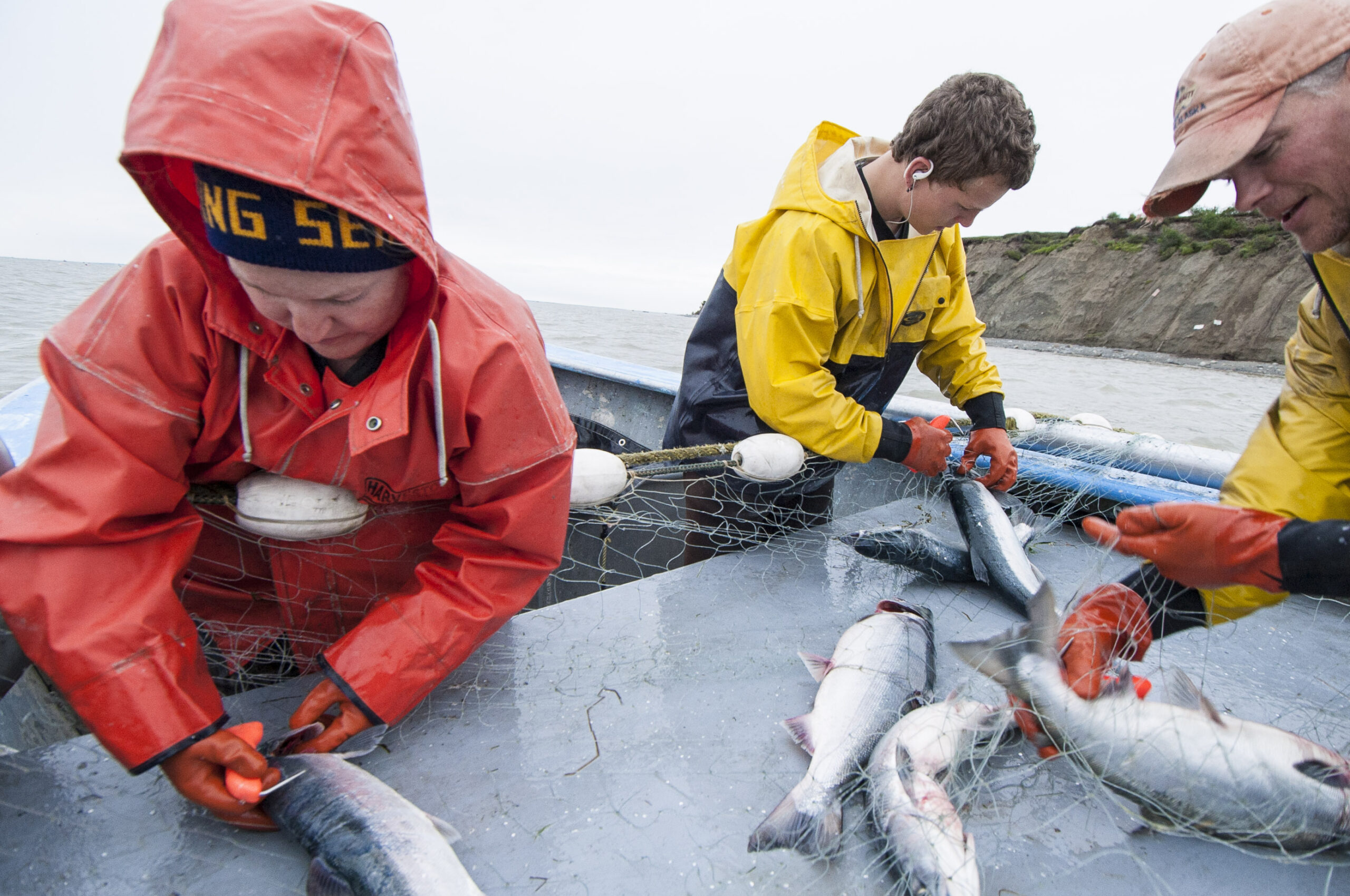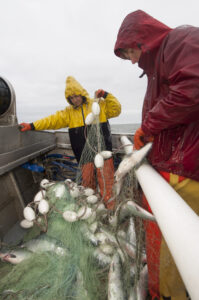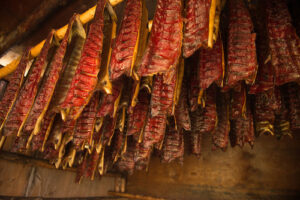
Bristol Bay Case Won by Trustees for Alaska

The Bristol Bay watershed produces some of the world’s largest runs of salmon. The commercial fishery provides jobs to 10,000 people annually and depending on the runs, is valued around $100 million. The prospect of a large-scale mining operation in the middle of this natural bounty is ill-advised. Photo courtesy of © Carl Johnson.
Citizens of Alaska won big with the recent Alaska Supreme Court decision regarding decades of permitting for the Pebble Project. The Court found that the State of Alaska was wrong in issuing permits for the Pebble Project without public notice or evaluation of whether exploration activities in the Bristol Bay area were in the public interest. For years the Department of Natural Resources issued permits for destructive mining exploration activities including extensive core drilling and helicopter flights without requiring any public process.
In 2009, Trustees for Alaska challenged the Department of Natural Resource’s failure to give public notice or provide for comment on behalf of concerned citizens in the region who care about and rely upon the resources of Bristol Bay. The lawsuit challenged the permits based on the resource protections in Article VIII of the Alaska Constitution. Trustees argued issuance of the permits violated Article VIII because DNR did not do a public interest analysis and include the public in the decision making process.

Violet Willson, who recently passed away and lived in Naknek, previously made this statement, “I would be very happy if the Court decides against Pebble and the State. Being Alaska Native and born and raised in Bristol Bay, my whole life’s been about salmon. I was a widow at 31, raised five children, and fished commercially. My home was built with salmon money and I never drew welfare. I’ve been against Pebble since the very beginning. I have the right to protect our resources for future generations; this is our land, Alaska land, my land.” Photo courtesy of © Carl Johnson.
“This decision means that all Alaskans, especially those whose rights and livelihoods are jeopardized by intensive exploration activities like those at Pebble, have the constitutional right to participate in the decisions affecting them,” said Trustees for Alaska Executive Director Vicki Clark. “The State has issued permits behind closed doors without even looking at the harm to public resources.”
Trustees for Alaska represented Nunamta Aulukestai, an association of ten village corporations and ten tribes in the Bristol Bay region; former First Lady Bella Hammond; State Constitutional Convention delegate Vic Fischer; and Bristol Bay residents Ricky Delkittie, Sr. and Violet Willson (recently deceased).
Mine developer Pebble Limited Partnership (PLP) was allowed to intervene as a party in the case to defend the permits.
TWO DECADES OF MINING WITHOUT PUBLIC OVERSIGHT
In the Bristol Bay watershed that produces the world’s largest salmon fishery, PLP for over 20 years has drilled 1,200 of boreholes, some as much as a mile deep, leaving behind casings and grout material; conducted thousands of seismic explosions; dug dozens of test pits; dispersed drilling fluids onto the tundra; disposed of drill cuttings and toxic waste in unlined pits; and incurred numerous fuel spills—all without public notice or comment. PLP also flew hundreds of helicopter trips dispersing wildlife through areas on which residents depend for subsistence hunting.
These are the public impacts that that the case challenged. “As subsistence users of the region, we know that exploration is having a serious impact on land, water, wildlife, and fish. We rely on these resources for survival, yet DNR has never evaluated these impacts or let us participate in the decisions to allow them,” said Kim Williams, Executive Director for Nunamta Aulukestai.
READ ALL RELATED STORIES ON THE PEBBLE MINE
Here are some links to media stories on the Court’s decision:
Here’s a link to an informative blog post:



